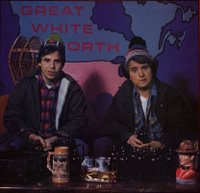Today's new agreement is a giant leap forward on the path of progress. It gives our province 100 percent of our provincial share of offshore revenues, free from equalization [sic] clawback while we are an equalization-receiving province. [Emphasis added]
Premier Danny Williams
Atlantic Accord 2005 signing ceremony
February 14, 2005
Atlantic Accord 2005 signing ceremony
February 14, 2005
The January 2005 offshore revenue deal with the Government of Canada will deliver only half the revenue protection promised by Premier Danny Williams in 2005, according to an assessment of figures released by the Government of Newfoundland and Labrador on Thursday in Budget 2006.
Provincial government figures show that while total oil and gas revenues will be some $927 million in Fiscal Year (FY) 2006, the provincial government will receive offsets of only $329 million.
That's just half the $648.9 million the province should be receiving.1
Coupled with the Equalization offsets contained in the Atlantic Accord 1985, Danny Williams' 2005 agreement with former prime minister Paul Martin was supposed to create a new federal transfer payment that would equal 70% of the province's total offshore revenues. This is the amount supposedly clawed back through reductions in Equalization caused by growing oil and gas revenues. The remaining 30% was supposedly shielded from Equalization calculations already.
In the budget speech, provincial finance minister Loyola Sullivan said:
In 2006-07, the province is expecting to generate royalties from oil production of $703 million2 and corporate income tax from companies operating in the offshore area of $224 million. This represents direct revenue from offshore oil of $927 million in this year alone. This forecast assumes the average price per barrel of oil will be $US57. Added to this is the benefit accruing to the people of the province from the Atlantic Accord arrangements which will contribute an additional $329 million in 2006-07.While Danny Williams originally sought a deal that would deliver to the provincial government a federal transfer equal to total provincial oil and gas revenues, the agreement signed in January 2005 contained an important redefinition of the word "revenue" that to date has never been discussed publicly.
The January 2005 agreement defines revenues as being the money collected under the Canada-Newfoundland Atlantic Accord Implementation Act (1987)3. That federal law refers only to royalties collected on behalf of the province.
Even using the more restrictive definition - which has never been publicly acknowledged by the provincial government - the forecast offsets for 2006 are below what they ought to be. Provincial royalties estimated at $663.4 million would give an offset amount of $464.38 million.
That's a difference of $135.38 million more than the budget forecast.
Using Sullivan's royalty figure of $703 million, the offset should be $492.1 million, or $163 million more than Budget 2006 projects.
-------------
Notes
1 Based on the original Williams proposal to offset total provincial oil and gas revenues. The figure is 70% of the total oil and gas revenues and assumes that the remaining 30% of total revenues is already protected from supposed Equalization clawbacks. Some sources have estimated the clawback to be much higher, amounting to as much as 85%. The 70% clawback is used since it is the one referred to most often by Premier Williams in 2004.
2 The Estimates gives this figure as $663.4 million. See for example, Statement IV, p. vii.
3 "2. ...The Government of Canada intends to provide additional offset payments to the province in respect of offshore-related Equalization reductions, effectively allowing it to retain the benefit of 100 per cent of its offshore resource revenues...[Note 1 in original] Defined as revenue received from the Government of Canada under the Canada-Newfoundland Atlantic Accord Implementation Act and Hibernia contractual royalties."
Under the Canada-Newfoundland Atlantic Accord Implementation Act, 1987, the Government of Canada collects royalties from the Newfoundland Offshore Area, which are transferred to the Government of Newfoundland and Labrador under the terms of a memorandum of understanding between the two governments.
The Atlantic Accord (1985) defined the province's revenues much more broadly:
On the basis of the foregoing, Newfoundland shall receive the proceeds of the following revenues from petroleum related activity in the offshore area:
(a) royalties;
(b) a corporate income tax which is the same as the generally prevailing provincial corporate income tax in the province;
(c) a sales tax that is the same as the generally prevailing provincial sales tax in the
province;
(d) any bonus payments;
(e) rentals and licence fees; and
(f) other forms of resource revenue and provincial taxes of general application, consistent with the spirit of this Accord, as may be established from time to time.









